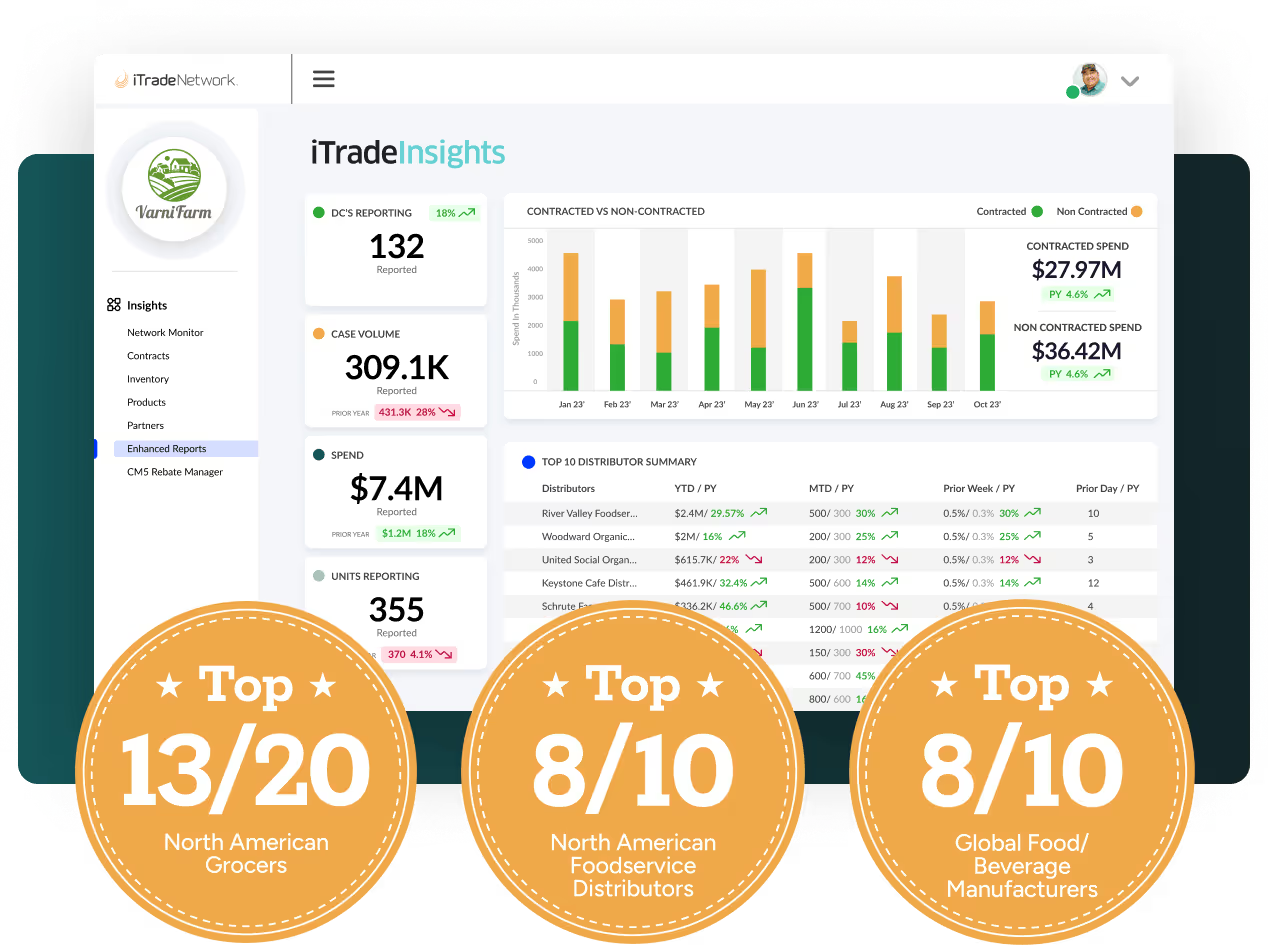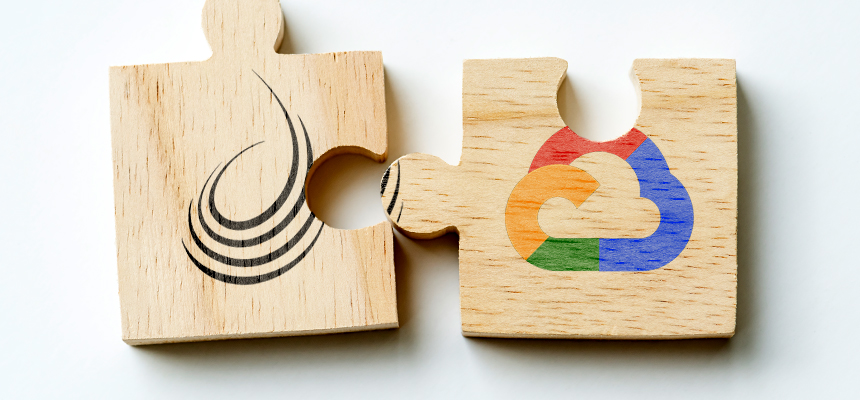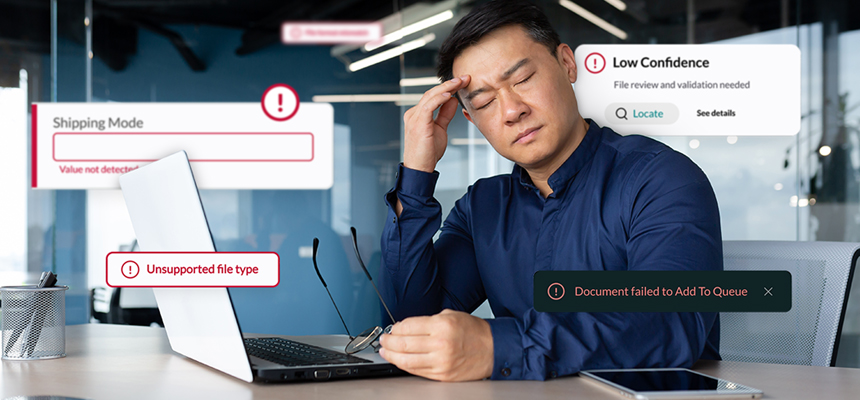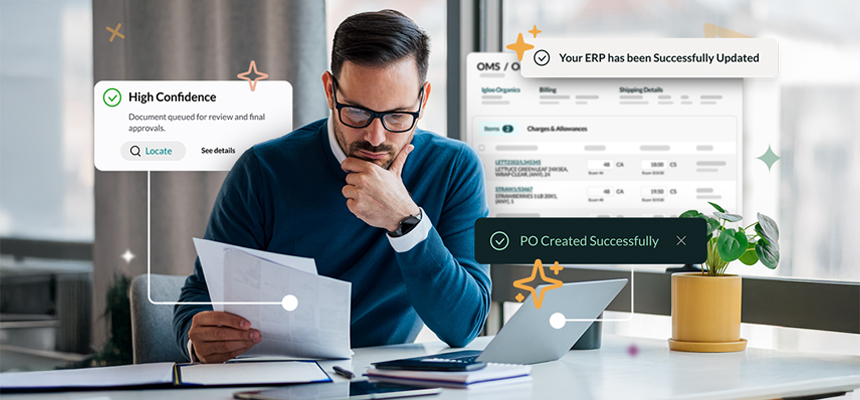EDI vs Order Management Solutions: What’s the Difference?

There are a lot of digital solutions out there that claim to help you grow as an independent grocer. But what exactly are these solutions, which will benefit you most, and how are they different from the ERP you already have in place? These are common questions many growing grocers have. It’s time to get the answers you need to find the right solution for your procurement process needs.
You have an ERP in place now, which you may more commonly refer to as your procurement or financial system, but an ERP is only taking care of your internal workflow. What about external connections? How are you collaborating with your suppliers? When it comes to external workflows and communication, you need to go beyond an ERP; you need EDI or order management solution.
We’ll explain the benefits and limitations of each so you can make a better decision about which one will allow you to communicate and grow as you need.
What is EDI?
EDI stands for Electronic Data Interchange. An EDI (also known as a VAN, or Value Added Network) allows for electronic transmission of documents, like an 850 purchase order and an 855 PO acknowledgment, between buyer and supplier.
Benefits of EDI:
- Eliminates paper processing
- Reduces time by sending documents electronically
- Reduces errors of manual processes (i.e., lost orders, wrong orders by phone, unintelligible handwriting)
- Structured and specific so it can be universally used
Limitations of EDI:
- Only transmits documents
- Multiple separate direct connections are needed -- Individual EDIs need to be set up with each vendor and managed individually
- Not optimal for perishable business
- Doesn’t allow for collaborative order management
What is an Order Management Solution?
An Order management solution, like iTrade’s Order Management System (OMS), centralizes your specific procurement operations, including document delivery, and client-facing communication in one centralized place.
Unlike EDIs, which is limited to just delivering documents, similar to mailing a letter, an order management solution offers a more modern hub and spoke model solution, like a social media platform -- you can see everything, communicate with everyone, and manage the end to end procurement process in one place.
Benefits of Order Management Solutions:
- Manages all aspects of the procurement process
- Allows trading with anyone, EDI or not
- Collaborative order management
- Optimal for ordering fresh produce
- Extends ERP functionality
- Enables scalability
Limitations of Order Management Solutions:
- Not all platforms are exactly alike
- Make sure your order management solution offers what you need (i.e., real-time communication, document delivery, item mapping, etc.)
- Your supplier also needs to use the same solution (if they are not on the same platform, they can be added at either their cost or yours.)
EDI or Order Management: Which one is right for you?
Now that you understand the benefits and limitations of each procurement process solution, which one is right for you? If your goal is to cut costs and grow as an independent grocer, an order management solution like iTrade’s Order Management System (OMS) is your best option.
OMS offers you a modern solution that helps to streamline your order management process and create more collaboration with suppliers, which is key to your success.
Remember I mentioned that not all Order Management Systems are the same. So you need to find a solution that fits your specific needs as an independent grocer and easily integrates with your ERP, like iTrade’s Order Management System (OMS). iTrade’s Order Management System (OMS) is designed for growing grocers who want to make bold moves.
Ready to get started? Schedule a demo to learn how iTradeNetwork can help your business!
Speak to an Expert
Take a closer look at the platform built for buyers and their trading partners

EDI vs Order Management Solutions: What’s the Difference?
There are a lot of digital solutions out there that claim to help you grow as an independent grocer. But what exactly are these solutions, which will benefit you most, and how are they different from the ERP you already have in place? These are common questions many growing grocers have. It’s time to get the answers you need to find the right solution for your procurement process needs.
You have an ERP in place now, which you may more commonly refer to as your procurement or financial system, but an ERP is only taking care of your internal workflow. What about external connections? How are you collaborating with your suppliers? When it comes to external workflows and communication, you need to go beyond an ERP; you need EDI or order management solution.
We’ll explain the benefits and limitations of each so you can make a better decision about which one will allow you to communicate and grow as you need.
What is EDI?
EDI stands for Electronic Data Interchange. An EDI (also known as a VAN, or Value Added Network) allows for electronic transmission of documents, like an 850 purchase order and an 855 PO acknowledgment, between buyer and supplier.
Benefits of EDI:
- Eliminates paper processing
- Reduces time by sending documents electronically
- Reduces errors of manual processes (i.e., lost orders, wrong orders by phone, unintelligible handwriting)
- Structured and specific so it can be universally used
Limitations of EDI:
- Only transmits documents
- Multiple separate direct connections are needed -- Individual EDIs need to be set up with each vendor and managed individually
- Not optimal for perishable business
- Doesn’t allow for collaborative order management
What is an Order Management Solution?
An Order management solution, like iTrade’s Order Management System (OMS), centralizes your specific procurement operations, including document delivery, and client-facing communication in one centralized place.
Unlike EDIs, which is limited to just delivering documents, similar to mailing a letter, an order management solution offers a more modern hub and spoke model solution, like a social media platform -- you can see everything, communicate with everyone, and manage the end to end procurement process in one place.
Benefits of Order Management Solutions:
- Manages all aspects of the procurement process
- Allows trading with anyone, EDI or not
- Collaborative order management
- Optimal for ordering fresh produce
- Extends ERP functionality
- Enables scalability
Limitations of Order Management Solutions:
- Not all platforms are exactly alike
- Make sure your order management solution offers what you need (i.e., real-time communication, document delivery, item mapping, etc.)
- Your supplier also needs to use the same solution (if they are not on the same platform, they can be added at either their cost or yours.)
EDI or Order Management: Which one is right for you?
Now that you understand the benefits and limitations of each procurement process solution, which one is right for you? If your goal is to cut costs and grow as an independent grocer, an order management solution like iTrade’s Order Management System (OMS) is your best option.
OMS offers you a modern solution that helps to streamline your order management process and create more collaboration with suppliers, which is key to your success.
Remember I mentioned that not all Order Management Systems are the same. So you need to find a solution that fits your specific needs as an independent grocer and easily integrates with your ERP, like iTrade’s Order Management System (OMS). iTrade’s Order Management System (OMS) is designed for growing grocers who want to make bold moves.
Ready to get started? Schedule a demo to learn how iTradeNetwork can help your business!
Unlock It Now!





